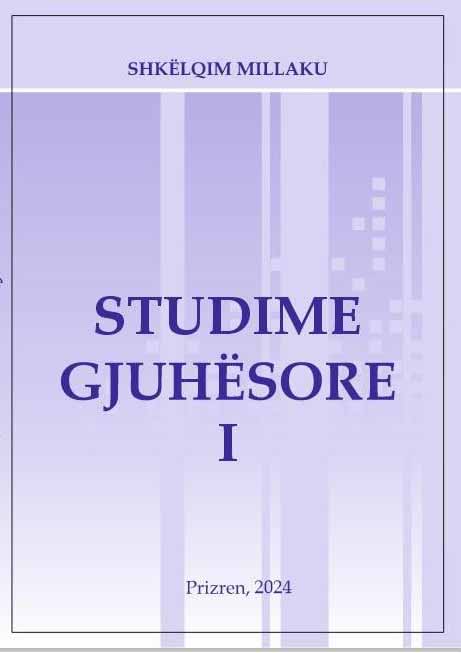Studime gjuhësore I
The language studies I
Author(s): Shkëlqim Millaku
Subject(s): Language and Literature Studies, Theoretical Linguistics, Applied Linguistics, Morphology, Comparative Linguistics
Published by: Shtepia Botuese “MESHARI”
Keywords: Word-formation; compound words; derivation; journal Albanian and English language;
Summary/Abstract: In linguistics, a compound is a lexeme (less precisely, a word) that consists of more than one stem. Compounding or composition is the word-formation that creates compound lexemes (the other word-formation process being derivation). Compounding or Word - compounding refers to the faculty and device of language to form new words by combining or putting together old words. In other words, compound, compounding or word-compounding occurs when a person attaches two or more words together to make them one word. The meanings of the words interrelate in such a way that a new meaning comes out which is very different from the meanings of the words in isolation.The compound words are all the words that are compound from two or more words and both of them creative the new words with the new meaning. The compound words in Albanian are creative late in our grammar. They’ve beginning at the XIX century and are study in two ways:The first way is studied by the forage studies for example: Hahni, Dozoni, Weigandi etc. All of them said their negative opinions for Albanian compound, because they said do not exist the compound noun. In fact the compound nouns are studied by the Albanian authors for example K. Kristoforidhi, A. Kostallari, K.Cipo, S. Frashëri, N. Frashëri. They have augmented the compound by the basic of language, from the dialects and from their origin e.g. zemërluan, zemërgur, ujmirë, juglindje, bashkëpunim, marrëdhënie zemërgur, belhollë, buzëqesh, keqkuptoj, fjalëshumë hekurudhë (heku+udhë), kryeqytet, shtëpi-muze etc. This book has found the compound in ‘Përpjekja shqiptare’ journal, so the book has some chapters and it is in Albanin and English language. The English language has the same form and sometimes same structure and meaning with compound of Albanian e.g. “English merchants in the Orient during the 18th century often built enclosed trading stations to protect themselves and their goods form thieves. They called these stockade enclosures compounds, from the Malay kampong, “enclosure”. The compound is no relation to the chemist’s compound, which derives from the Latin composer, “put together”. With inters of studies for compound nouns we one think by Mariana Celce - Murcia, that in his book said: “The grammar book” ka shkruar: “Compounding, or putting together existing words to form a new lexical unit (rain + cout = raincout), is a word-formation process that occurs in some languages. For example, the Germanic language (this includes English) and the Chinese language make rich use of compounding, whereas other languages make much less use of this process. According to the Collins Cobuild English Grammar, almost any noun can modify any other noun in English. Take the noun house, for instance. We have housebroken housemate, house sitter, houseboat, house arrest, housebreaking, houseguest, housefly, housekeeper, houselights, housewife, housework, and this list in not exhaustive, by any means… Some of the frequent English compounding patters are:Noun + noun: stone wall, baby blanket, rainbow, Noun + verb: homemade, rainfall, lip-read, Noun + verb-er: baby-sitter, can opener, screwdriver, Adj. + noun: blackbird, greenhouse, cold cream, Adj./adv. + noun + -en: quick-frozen, nearsighted, dim-witted, Prep. + noun: overlord, underdog, underworld…”
- Print-ISBN-13: 978-9951-837-64-4
- Page Count: 180
- Publication Year: 2024
- Language: Albanian
- eBook-PDF
- Table of Content
- Introduction

